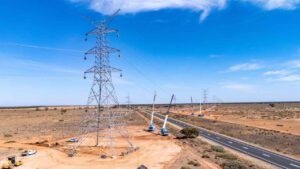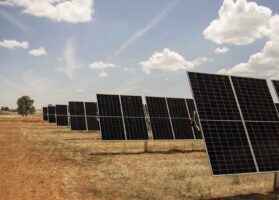Tiny Pacific nations and huge Australian mining projects have a few things in common. The value of some huge mining projects is probably equivalent to the GDP of some small nations, and both face huge bills to import diesel to provide electricity.
Because of their greater comparative wealth, mining operations are better placed to deal with the costs, which is possibly why island nations are showing a whole lot more ambition to dump diesel and other dirty expensive fuels and replace them with clean sources.
According to a report from Agence France Press, the leaders of a number of island nations in the Pacific and elsewhere have pledged to source their electricity requirements entirely from renewable sources by the end of the decade.
The tiny island of Tokelau — which consists of three island dots half way between New Zealand and Hawaii — plans to become self-sufficient in energy this year, using coconut biofuel and solar panels, according to AFP. The Cook Islands and Tuvalu in the Pacific are aiming to get all of their electricity from renewable sources by 2020, while St. Vincent and the Grenadines in the Caribbean is aiming for 60 per cent from renewables by 2020.
AFP said East Timor’s government has vowed that no family in its capital, Dili, would be using firewood for cooking by 2015 and said half the country’s electricity would be from renewable sources by the end of the decade.
“I know we set ambitious targets, but it is actually exciting,” Cook Islands Prime Minister Henry Puna told AFP. “We don’t see those targets as being difficult. It is very inspiring and that is what is motivating us to get going.”
According to the AFP report, Puna said about 15 per cent of the country’s budget is spent on importing diesel oil, and he wants those tens of millions of dollars spent on health and social services and education for the approximately 20,000 inhabitants of 15 islands spread over 2.2 million square kilometers in the Pacific.
Puna said the government plans to start converting to solar panels and wind turbines. Already nearly all houses have solar water heaters. New Zealand and Japan are helping fund the investment. “Somewhere in our makeup we are environmentally conscious people,” Puna told AFP. “Because we have learned to live off the land and off the sea, that is our heritage, that is our tradition and we are just tapping into that again.”







